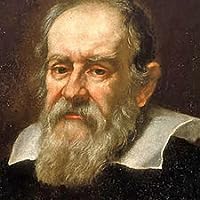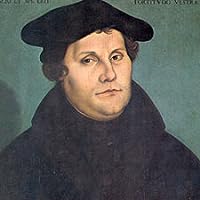Papacy Quotes
Quotes tagged as "papacy"
Showing 1-17 of 17

“After an injunction had been judicially intimated to me by this Holy Office, to the effect that I must altogether abandon the false opinion that the sun is the center of the world and immovable, and that the earth is not the center of the world, and moves, and that I must not hold, defend, or teach in any way whatsoever, verbally or in writing, the said false doctrine, and after it had been notified to me that the said doctrine was contrary to Holy Scripture — I wrote and printed a book in which I discuss this new doctrine already condemned, and adduce arguments of great cogency in its favor, without presenting any solution of these, and for this reason I have been pronounced by the Holy Office to be vehemently suspected of heresy, that is to say, of having held and believed that the Sun is the center of the world and immovable, and that the earth is not the center and moves:
Therefore, desiring to remove from the minds of your Eminences, and of all faithful Christians, this vehement suspicion, justly conceived against me, with sincere heart and unfeigned faith I abjure, curse, and detest the aforesaid errors and heresies, and generally every other error, heresy, and sect whatsoever contrary to the said Holy Church, and I swear that in the future I will never again say or assert, verbally or in writing, anything that might furnish occasion for a similar suspicion regarding me; but that should I know any heretic, or person suspected of heresy, I will denounce him to this Holy Office, or to the Inquisitor or Ordinary of the place where I may be. Further, I swear and promise to fulfill and observe in their integrity all penances that have been, or that shall be, imposed upon me by this Holy Office. And, in the event of my contravening, any of these my promises and oaths, I submit myself to all the pains and penalties imposed and promulgated in the sacred canons and other constitutions, general and particular, against such delinquents.”
― Dialogue Concerning the Two Chief World Systems: Ptolemaic and Copernican
Therefore, desiring to remove from the minds of your Eminences, and of all faithful Christians, this vehement suspicion, justly conceived against me, with sincere heart and unfeigned faith I abjure, curse, and detest the aforesaid errors and heresies, and generally every other error, heresy, and sect whatsoever contrary to the said Holy Church, and I swear that in the future I will never again say or assert, verbally or in writing, anything that might furnish occasion for a similar suspicion regarding me; but that should I know any heretic, or person suspected of heresy, I will denounce him to this Holy Office, or to the Inquisitor or Ordinary of the place where I may be. Further, I swear and promise to fulfill and observe in their integrity all penances that have been, or that shall be, imposed upon me by this Holy Office. And, in the event of my contravening, any of these my promises and oaths, I submit myself to all the pains and penalties imposed and promulgated in the sacred canons and other constitutions, general and particular, against such delinquents.”
― Dialogue Concerning the Two Chief World Systems: Ptolemaic and Copernican

“The East will tolerate any amount of schism, but no heresy. The West will tolerant any amount of heresy, but no schism. We desperately need each other.”
―
―

“They undertook to fight against the Turk under the name of Christ, and taught men and stirred them up to do this, as though our people were an army of Christians against the Turks, who were enemies of Christ; and this is straight against Christ’s doctrine and name. It is against His doctrine, because He says that Christians shall not resist evil, shall not fight or quarrel, not take revenge or insist on rights. It is against His name, because in such an army there are scarcely five Christians, and perhaps worse people in the eyes of God than are the Turks; and yet they would all bear the name of Christ. This is the greatest of all sins and one that no Turk commits, for Christ’s name is used for sin and shame and thus dishonored. This would be especially so if the pope and the bishops were in the war, for they would put the greatest shame and dishonor on Christ’s name, since they are called to fight against the devil with the Word of God and with prayer, and would be deserting their calling and office and fighting with the sword against flesh and blood. This they are not commanded, but forbidden to do.”
― On War Against the Turk
― On War Against the Turk

“It is most certainly not the function of the Holy See to introduce Church reforms. The first duty of the Pope is to act as primary bishop, to watch over the traditions of the Church—her dogmatic, moral and liturgical traditions.”17”
― The Great Façade: The Regime of Novelty in the Catholic Church from Vatican II to the Francis Revolu
― The Great Façade: The Regime of Novelty in the Catholic Church from Vatican II to the Francis Revolu

“The difference between us and the papists is that they do not think that the church can be 'the pillar of the truth' unless she presides over the word of God. We, on the other hand, assert that it is because she reverently subjects herself to the word of God that the truth is preserved by her and passed on to others by her hands.”
―
―

“When, during and after the Reformation, the universities lost their status as so many autonomous parts of the universal church, they lost their independence correspondingly. In Protestant Europe, they came under the jurisdiction of the national churches and of the rapacious national monarchies; in Catholic Europe --although to a lesser extent--they came under the jurisdiction of the reinvigorated and consolidated Papacy, and of the sovereigns who, as in Spain and France, made royal influence over the church establishment within their realms a condition of their support for the Roman cause. The dissolution of medieval universalism meant that learning, like nearly everything else, was forced to submit to new or more rigid denominations. With the complete or partial secularization of society which followed upon the French Revolutionary era, in nearly every country except Britain, the universities were stripped of what remained of their old rights and became little better than state corporations.”
― Academic Freedom: An Essay in Definition
― Academic Freedom: An Essay in Definition

“Of the three popes, John the Twenty-third was the first victim: he fled and was brought back a prisoner: the most scandalous charges were suppressed; the vicar of Christ was only accused of piracy, murder, rape, sodomy and incest”
― The Decline and Fall of the Roman Empire
― The Decline and Fall of the Roman Empire

“How much less, then, is the disorder to be tolerated that arises when a Christian leaves his office and takes upon him a temporal office, or when a bishop or pastor leaves his office and takes upon him the office of a prince or judge; or, on the other hand, when a prince takes up the office of a bishop and lets his princely office go? Even today this shameful disorder rages and rules in the whole papacy, contrary to their own canons and laws.”
― On War Against the Turk
― On War Against the Turk

“Popery is the gospel transubstantiated into the flesh and blood of Paganism, under a few of the accidents of Christianity.”
― The Papacy: Its History, Dogmas, Genius, and Prospects
― The Papacy: Its History, Dogmas, Genius, and Prospects
“In the upper echelons of the Church, the authoritarian and anti-liberal elements within fascism resonated with those – and they included Pius XI – who had come to see the turmoil and conflict that had convulsed the world in recent decades as symptoms of the deep moral malaise that had afflicted Western society since the time of the Enlightenment, with its corrosive doctrines of rights and popular sovereignty.”
― Fascist Voices: An Intimate History of Mussolini's Italy
― Fascist Voices: An Intimate History of Mussolini's Italy

“The enemies of Christ from Nero to Napoleon eventually discovered that to attack or murder the pope only creates sympathy and martyrs. It is a failed strategy in every era. So instead, they sought quietly to place one of their own in the papal shoes. It would require decades, even a century, to create the seminaries, the priests, the bishops, the cardinal electors, and then even the pope or popes themselves — but it would be worth the wait. It has been a slow, patient plan to establish a Satanic revolution with the pope as puppet.”
― Infiltration: The Plot to Destroy the Church from Within
― Infiltration: The Plot to Destroy the Church from Within

“On 28 February 2013, the unimaginable happened: Pope Benedict XVI resigned the papacy and flew off in a helicopter as the world watched, baffled. Benedict was the first pope to resign since Pope Gregory XII in 1415, almost 598 years before.”
― Infiltration: The Plot to Destroy the Church from Within
― Infiltration: The Plot to Destroy the Church from Within

“many faithful have concluded that Pope Benedict remains pope and that Pope Francis is an antipope without the charism and protection of the papacy.”
― Infiltration: The Plot to Destroy the Church from Within
― Infiltration: The Plot to Destroy the Church from Within
“All Protestants are Crypto-Papists,’ wrote the Russian theologian Alexis Khomiakov to an English friend in the year 1846. ‘ . . . To use the concise language of algebra, all the West knows but one datum a; whether it be preceded by the positive sign +, as with the Romanists, or with the negative − as with the Protestants, the a remains the same. Now a passage to Orthodoxy seems indeed like an apostasy from the past, from its science, creed, and life. It is rushing into a new and unknown world.’
Khomiakov, when he spoke of the datum a, had in mind the fact that western Christians, whether Free Churchmen, Anglicans, or Roman Catholics, have a common background in the past. All alike (although they may not always care to admit it) have been profoundly influenced by the same events: by the Papal centralization and the Scholasticism of the Middle Ages, by the Renaissance, by the Reformation and Counter-Reformation, and by the Enlightenment. But behind members of the Orthodox Church — Greeks, Russians, and the rest — there lies a very different background. They have known no Middle Ages (in the western sense) and have undergone no Reformations or Counter-Reformations; they have only been affected in an oblique way by the cultural and religious upheaval which transformed western Europe in the sixteenth and seventeenth centuries. Christians in the west, both Roman and Reformed, generally start by asking the same questions, although they may disagree about the answers. In Orthodoxy, however, it is not merely the answers that are different — the questions themselves are not the same as in the west. (p.1–2)”
― The Orthodox Church
Khomiakov, when he spoke of the datum a, had in mind the fact that western Christians, whether Free Churchmen, Anglicans, or Roman Catholics, have a common background in the past. All alike (although they may not always care to admit it) have been profoundly influenced by the same events: by the Papal centralization and the Scholasticism of the Middle Ages, by the Renaissance, by the Reformation and Counter-Reformation, and by the Enlightenment. But behind members of the Orthodox Church — Greeks, Russians, and the rest — there lies a very different background. They have known no Middle Ages (in the western sense) and have undergone no Reformations or Counter-Reformations; they have only been affected in an oblique way by the cultural and religious upheaval which transformed western Europe in the sixteenth and seventeenth centuries. Christians in the west, both Roman and Reformed, generally start by asking the same questions, although they may disagree about the answers. In Orthodoxy, however, it is not merely the answers that are different — the questions themselves are not the same as in the west. (p.1–2)”
― The Orthodox Church

“Żaden z prawych pasterzy owiec Chrystusowych nie poniży się wsłuchiwaniem się w bełkot, jakim poczyna teraz wydawać chrześcijaństwu rozkazy panosząca się na rzymskiej stolicy biskupiej prostacka ciemnota.”
― Srebrne orły
― Srebrne orły
“I was thrilled when I heard that Pope Paul VI was going to be canonized; he has been a mentor and model to me for more than fifty years. This mentoring started-even though I wasn't aware of it-when I was just a teenager. I entered the congregation of the Daughters of Saint Paul on June 29, 1963, the same day that Pope Paul VI was crowned. The coronation ceremony was fascinating, but foreign to me. It was like opening a time capsule. Little did I know, I was witnessing the elaborate ceremony for the last time. The coronation was just one of the many trappings of aristocracy that would be removed, prompted by subsequent decisions of Pope Paul VI to simplify the papacy and render it more evangelical.”
― Wisdom from Pope Paul VI
― Wisdom from Pope Paul VI

“Satan will first attempt to destroy the power of the Papacy and bring about the downfall of the Church through heresies, schisms and persecutions that must surely follow. Failing in this, he will then attack the Church from without. For this purpose he will raise up Antichrist and his prophet to lead the faithful into error and destroy those who remain steadfast.”
― The Reign of Antichrist: A Sourcebook of Catholic Prophecies about "The Man of Sin"
― The Reign of Antichrist: A Sourcebook of Catholic Prophecies about "The Man of Sin"
All Quotes
|
My Quotes
|
Add A Quote
Browse By Tag
- Love Quotes 97k
- Life Quotes 75.5k
- Inspirational Quotes 72.5k
- Humor Quotes 43.5k
- Philosophy Quotes 29.5k
- Inspirational Quotes Quotes 27k
- God Quotes 26k
- Truth Quotes 23.5k
- Wisdom Quotes 23.5k
- Romance Quotes 23k
- Poetry Quotes 22k
- Death Quotes 20k
- Happiness Quotes 18.5k
- Life Lessons Quotes 18.5k
- Hope Quotes 18k
- Faith Quotes 18k
- Quotes Quotes 16.5k
- Inspiration Quotes 16.5k
- Spirituality Quotes 15k
- Religion Quotes 15k
- Motivational Quotes 15k
- Writing Quotes 14.5k
- Relationships Quotes 14.5k
- Life Quotes Quotes 14k
- Love Quotes Quotes 13.5k
- Success Quotes 13.5k
- Time Quotes 12.5k
- Motivation Quotes 12k
- Science Quotes 11.5k
- Knowledge Quotes 11k

